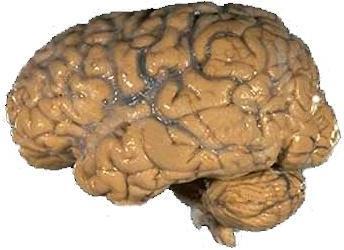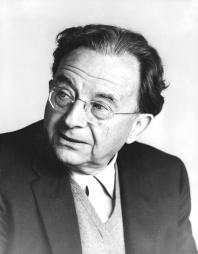Psychology Homework
What is Psychology?
Psychology is defined as the study of behavior and mental processes.
Behaviors can readily be seen and observed by others. For example, others can easily see behaviors such as walking, eating, singing, and laughing.
| But others may not easily see some behaviors such as blood pressure, digestion, and brain activity. Special machines such as EEG can measure brain activity. Mental processes cannot be observed directly either, although sometimes their results can be observed. |
|
The Goals of Psychology
Psychologists attempt to:
Describe
Explain
Predict
Control Behaviors
The psychologist's goal to describe is simply to observe and give a detailed description of a behavior. The psychologist then attempts to explain the motivations behind the observed behavior and what prompted such behavior. After putting forth an observed description and reason for a behavior, the psychologist then will be able to predict when the behavior will occur again. This, in turn, leads to the ability to control the behavior.
In summary, psychology's aim is to expand understanding of human actions and experience.
|
| "Man is the only animal for whom his own existence is a problem which he has to solve." |
Important Names To Know
There have been many contributors to the science of psychology and some have been more influential than others. Maybe you have heard of some of these famous psychologists?
Carl Jung - (1875-1961) A student of Sigmund Freud and a proponent of dream analysis, the Collective Unconscious, and Archetypes
Sigmund Freud - (1856-1939) From Austria, Freud is considered the father of modern psychology. He pioneered the psychoanalysis movement
John Watson - (1878-1958) The founder of behaviorism in psychology
Carl Rogers - (1902-1987) The founder and proponent of Person-Centered Psychotherapy
Wilhem Wundt - (1832-1920) Combined physiology and psychology and provided the basis for experimental psychology and also had a great interest in social psychology
Erich Fromm - (1900-1980) Famous proponent of Humanistic psychology
William James - (1842-1920) A philosopher/psychologist with interests in mysticism, religion and pragmatism
B.F. Skinner - (1904-1990) The most famous behavioral psychologist who proposed that human happiness could be achieved through social engineering
Ivan Pavlov - (1849-1936) Famous for his experiments making dogs salivate by programmed conditioning
Alfred Adler - (1870-1937) Spent most of his career investigating the workings of the human personality
Ludwig Binswanger - (1881-1966) A student of Carl Jung and proponent of existential psychology
Abraham Maslow - (1908-1970) Famous for coining the term Self-actualization and creating the Hierarchy of Needs in psychology
Areas of Study
The areas of study in psychology are vast. Here are some ideas of what psychologists in different sub fields would be interested in.
1) Developmental- A developmental psychologist would be interested in whether walking is hereditary or learned.
2) Social- A social psychologist would study the effects of prejudice and discrimination.
3) Biological- A biological psychologist would be interested in whether or not our brains control anger or depression.
4) Experimental- Psychologists in this field apply the scientific method with emphasis on the scientific experimental method and down playing case studies and interview methods of research.
5) Forensic- A forensic psychologist studies criminal behavior and motivation.
6) Consumer- A consumer psychologist would be interested in how a certain style of packaging influences a person's buying of the product.
7) Counseling- A counseling psychologist is similar to a clinical psychologist, but they differ in that clinical psychologists treat patients of a more severe nature.
8) Health- A health psychologist is interested in how various variables such as food, environment, stress and social factors influence health.
9) Clinical- Clinical psychologists often work one on one with an individual to assess, diagnose and to treat the individuals needs.
10) Personality- A personality psychologist often works as a teacher and researcher to study and explain the components of personality.
11) Industrial- An industrial psychologist would be interested in increasing an employee's motivation.
12) Educational- Educational psychologists work in academic settings researching and publishing papers about the theory, methodology and application of psychology.
Major Psychology Topics
Many diverse topics under the umbrella of psychology will be explored throughout this course. Our major topics of interest will include:
1) History and Evolution of Psychology
2) Comparative Study of Theories
3) An Exploration of Research Methods
4) The Biological Basis for Behavior
5) Sensation and Perception
6) Learning
7) Child Development
8) Theories of Personality
9) Cultural Influences on Psychology
10) Psychological Disorders
11) Therapies
DID YOU KNOW?
The study of the effects of color on behavior is an important field in psychology called color psychodynamics?
Assignment:
You are to answer the following questions in your own words. Remember to use complete sentences, use proper grammar, and don't forget to proofread and spell check your work before submitting it. This may require additional internet research, so be sure to cite your sources.
1. In your own words, describe what psychology is.
2. What behaviors can readily be observed by others?
3. What are some behaviors that cannot readily be observed by others?
4. List and describe the four goals of psychology in complete sentences and in your own words.
5. Research Humanistic psychology. Of the three men listed below, which were influential in the development of Humanistic psychology?
a) Carl Rogers
b) Abraham Maslow
c) Clark Moustakas
d) All of the Above
e) None of the Above
6. Who proposed that human happiness could be achieved through social engineering? What THEORY of psychology did he support??
7. What kind of psychologist would be interested in increasing employee motivation?
8. In your own words, without using an example from the lesson, what would a developmental psychologist be interested in?
9. In your own words, what is the main aim of the science of psychology?
10. Research Ludwig Binswanger and answer the following. 1) In what country was he born? 2) Name one of the main philosophers he was influenced by. 3) Give an interesting fact from his life of your choosing.
Use complete sentences to give real life examples of the following sub fields in psychology.
11. Counseling-
12. Personality-
13. Consumer-
14. Forensic-
Think About It
15. A famous psychologist named Carl Jung once said, "Every form of addiction is bad, no matter whether the narcotic be alcohol, morphine or idealism." In your own words, write a 100 word paragraph explaining what you Jung meant by this statement.





